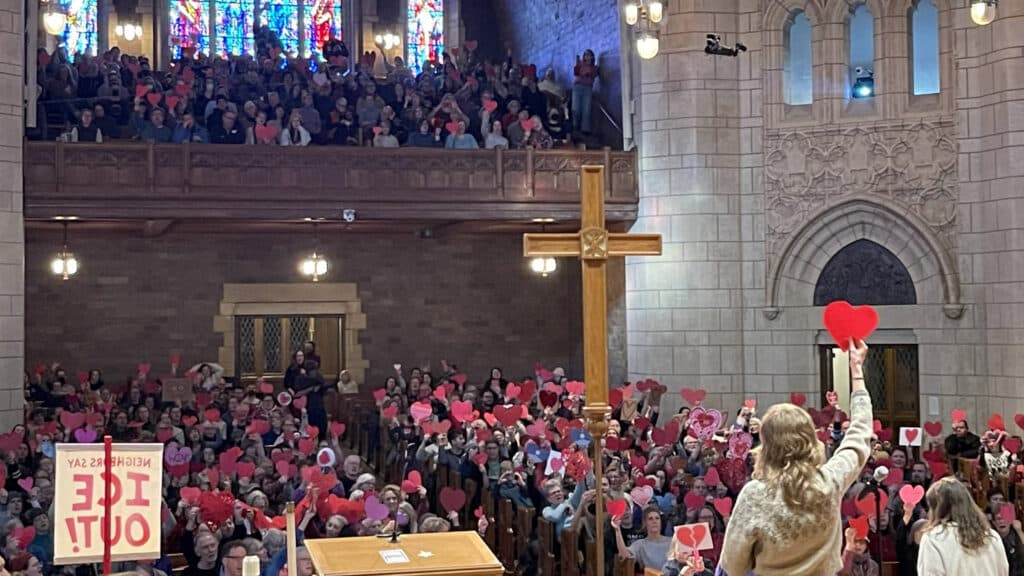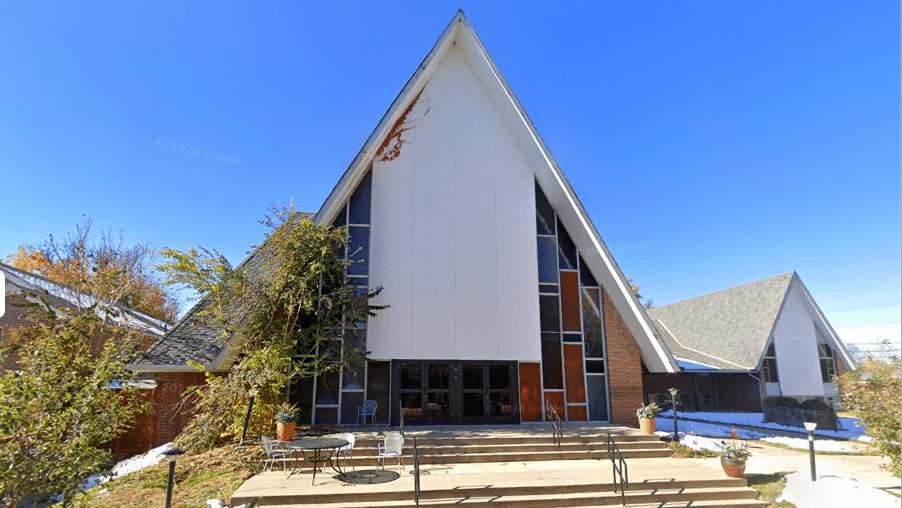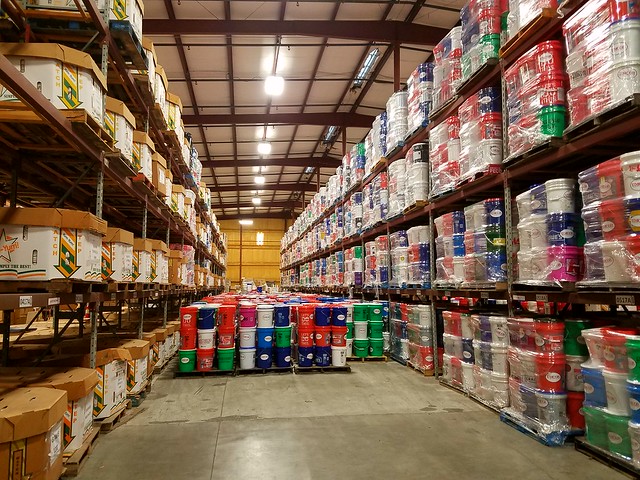MANILA – United Methodist mission partners in the Philippines gathered for roundtable discussions, Aug. 5-7, 2025, at the Wesley Conference Hall of the UMC headquarters in Manila. The meeting, attended by 30 participants, included 15 partners from the three Philippines Central Conference episcopal areas, UMC agencies and institutions; ecumenical partners; and educational institutions. The meeting provided a space for partners to share their context and strategic priorities, engage in continuing study on decolonizing mission, and focus on ways that Global Ministries and Higher Education and Ministry can mutually support the region.
The Philippines Central Conference (PCC) episcopal areas, agencies and institutions shared priorities for the quadrennium. A new strategic program was started by episcopal areas among 28 annual conferences. Some of these innovative ministries focus on resource development, leadership development for clergy and laity, and Wesleyan discipleship programs and resources. Health care access, ministry with indigenous people, congregational vitality and community engagement are priorities for the church, which has also taken steps toward salary and benefit standardization for church workers. Philippine outreach and mission growth in the Middle East was also lifted up in celebration.
Historic institutions continue to update and innovate
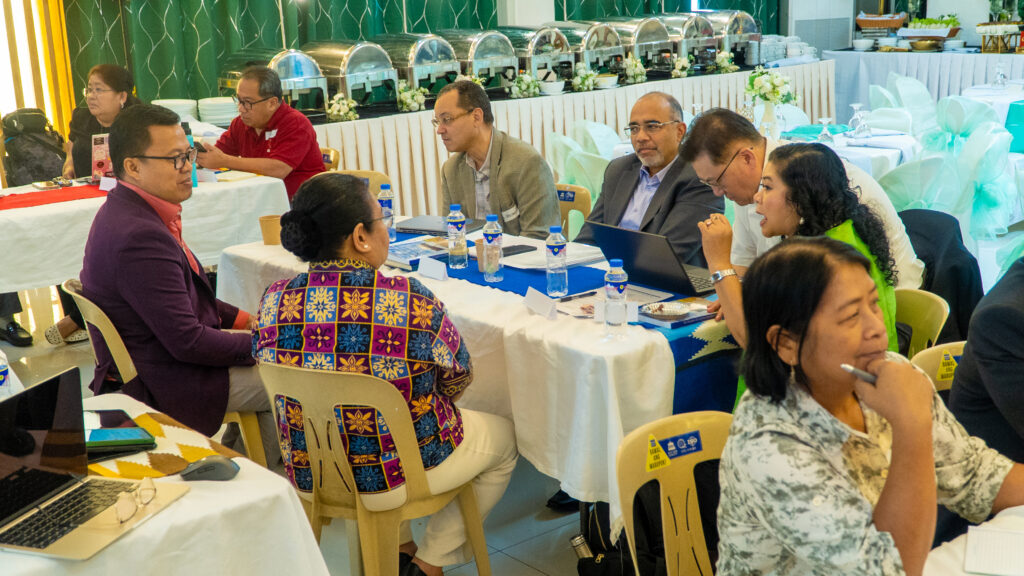
PCC agencies like the Board of Women’s Work, as well as two church-related institutions, the Kapatiran-Kaunlaran Foundation, Inc. (KKFI) and the Asuncion Perez Memorial Center, Inc. presented unique ministries of leadership development among women and youth, such as justice ministries and community development. There is deep engagement among communities of youth and women to serve children living with HIV and create opportunities in low-income communities, both urban and rural. Asuncion Perez’ ministry works with indigenous people known as the Aetas, who live in Zambales.
Mary Johnston Hospital, the only UMC hospital in the country, presented innovative programs and ministries such as a community-based midwives program and the Red Flame Initiative (a blood network ministry). In line with its green hospital program, the hospital is powered by solar panels – the savings from the lower electric bill is channeled to fund its HIV and AIDS program.
Educational institutions, such as Union Theological Seminary, Harris Memorial College, Southern Philippines Methodist Colleges and Wesley Divinity School, along with the Philippine Association of Methodist Schools, Colleges, Universities, and Seminaries (PAMSCUS) presented highlights from their current programs. They shared rich and unique histories – most of which are related to the work of early Methodist missionaries. They identified challenges that might benefit from Global Ministries and Higher Education and Ministry support in the areas such as scholarships, community extension programs, facility improvement, faculty development and other programs to strengthen ministerial formation and specialized trainings.
The disaster management offices (DMOs) and the Manila Episcopal Area Anti-Human Trafficking Program and Migrant Ministry outlined current programs to resource partners in the areas of disaster management, human trafficking and migration.
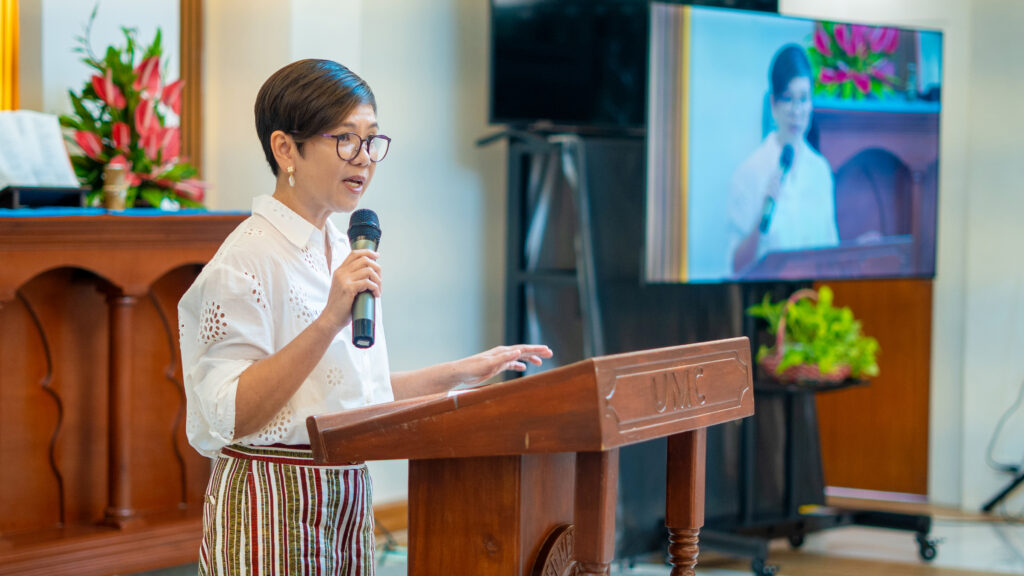
Learning from Ecumenical Partners
Our ecumenical partners enriched the roundtable meeting as they shared some risk-taking initiatives that allow them to accompany some of the most marginalized and vulnerable communities in the Philippines. These partners include the National Council of Churches in the Philippines, the Ecumenical Bishops Forum (EBF) – a fellowship of bishops from Roman Catholic and mainline Protestant churches, and the Ecumenical Center for Development (ECD), which focuses on advocacy and services that promote peace, justice, human rights and humanitarian work. Rise Up for Life and for Rights that works alongside ECD, works with families of the victims on the war on drugs under the presidency of Duterte.
Decolonizing Mission: A continuing journey for Philippine partners
Rev. Dr. Lizette Tapia-Raquel, academic dean of Union Theological Seminary, Philippines, led a presentation on decolonizing mission. History attests to the ways Christianity has been used to proliferate colonization. Dr. Tapia Raquel presented a feminist post-colonial criticism of John 4, in which Jesus meets a Samaritan woman and asserts his superiority over her. It was an invitation to be conscious of how the same text can be used for liberation or oppression. For a church to engage in mission, it must decolonize its interpretations of the Christ who never took the side of empire but promised blessing to the poor. Her presentation was followed by small-group discussions that opened space for participants to share their thoughts and insights on decolonizing mission.
Mutual understanding for stronger long-term partnerships
In both his opening and closing remarks, Roland Fernandes, general secretary for Global Ministries and Higher Education and Ministry, affirmed a commitment to walk and work with partners in the Philippines. “The roundtable continues the process of partner engagement and recognizes the importance for Global Ministries and GBHEM of the Philippines UMC, its organizations and ecumenical partners in the Philippines.” He further expressed that this roundtable arises out of the conviction that mutual understanding of each other leads to stronger long-term partnerships.
Echoing his words to the spring Board of Directors meeting of the two agencies, Fernandes reminded the partners of their collective moral imperative “to stand firm on the side of the gospel message, which calls us to welcome the stranger, feed the hungry and tend to the sick.”
Darlene Marquez-Caramanzana is an Asia Pacific area liaison with Global Ministries in the Philippines.

